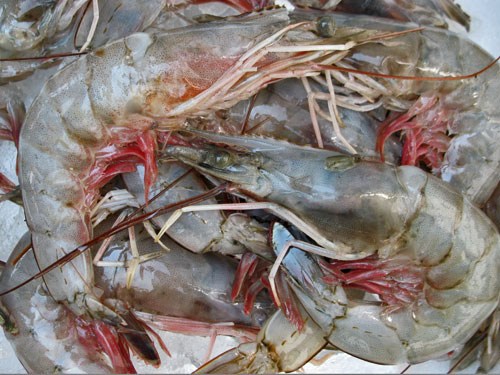
The Georgia Department of Natural Resources (DNR) announced that the state’s commercial and recreational shrimping season in state waters closed on Monday, Dec. 31, 2018.
Under the closure, all food shrimp harvesting activities, including trawling, cast netting and seining, are prohibited both commercially and recreationally in Georgia’s territorial waters, which extend three miles to sea from the state’s shorelines.
Waters from three to 200 miles off Georgia’s coast are managed by the National Marine Fisheries Service, a division of the National Oceanographic and Atmospheric Administration, and are not affected by DNR’s Monday closure.
The announcement came after members of DNR’s Coastal Resources Division (CRD) consulted with the Shrimp Advisory Panel, a subcommittee of the state Marine Fisheries Advisory Council.
The panel is comprised of 11 stakeholders, including commercial and recreational shrimpers, and makes recommendations to DNR staff about shrimping-related policy.
Based on scientific data gathered by DNR biologists and input from the Shrimp Advisory Panel, CRD did not recommend an extension of the shrimping season past December 31.
Georgia law allows for shrimping season to be extended to January and February at the discretion of the Commissioner of Natural Resources if data collected by CRD shows shrimp are abundant.
The annual closure is meant to give shrimp populations the ability to remain healthy and allow for the smaller shrimp to grow to more marketable sizes, said Carolyn Belcher, chief of the Marine Fisheries Section at CRD.
Every month year-round, a team of marine biologists and researchers from CRD collect data about shrimp populations from 36 sites along Georgia’s 100-mile coast. Aboard the research vessel Anna, a 60-foot shrimp trawler operated by DNR, biologists net shrimp and record the amount of shrimp caught per trawl and the overall weight of the catch.
One of the important indicators to biologists is the number of individual shrimp it takes to make a pound, referred to as “count size.” When shrimp are smaller, it takes more individuals to make a full pound. One of the benchmarks biologists use when considering closing Georgia’s waters is 50 shrimp or more making a pound.
Data collected by CRD biologists in December found it took about 58 shrimp to make one pound, roughly 53 percent higher than the long-term average from data collected since 1976.
In 2017, Georgia’s commercial shrimpers landed more than 1.8 million pounds of shrimp valued at about $7.6 million. The Georgia 2018 shrimping season opened June 18.
source: Georgia Department of Natural Resources